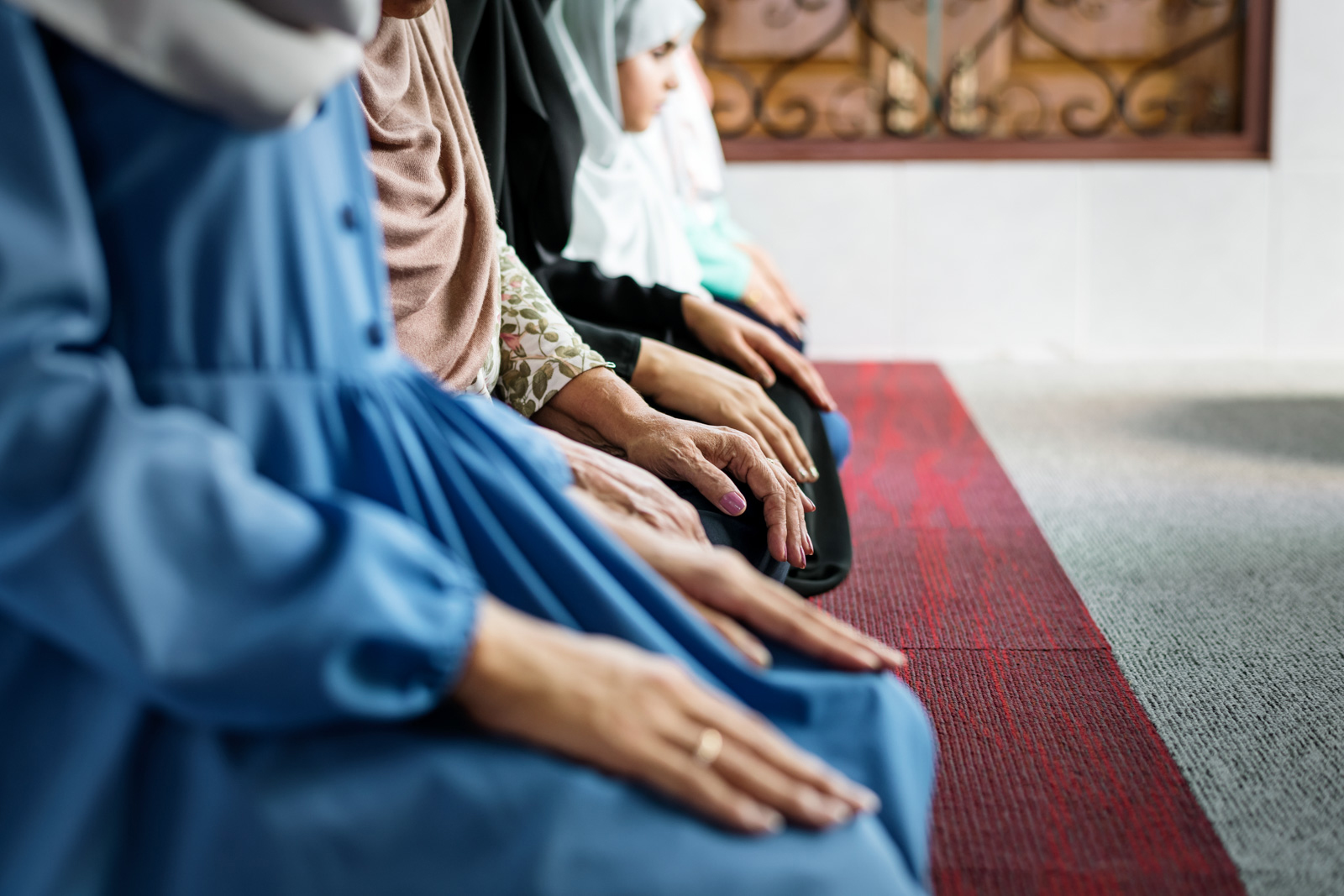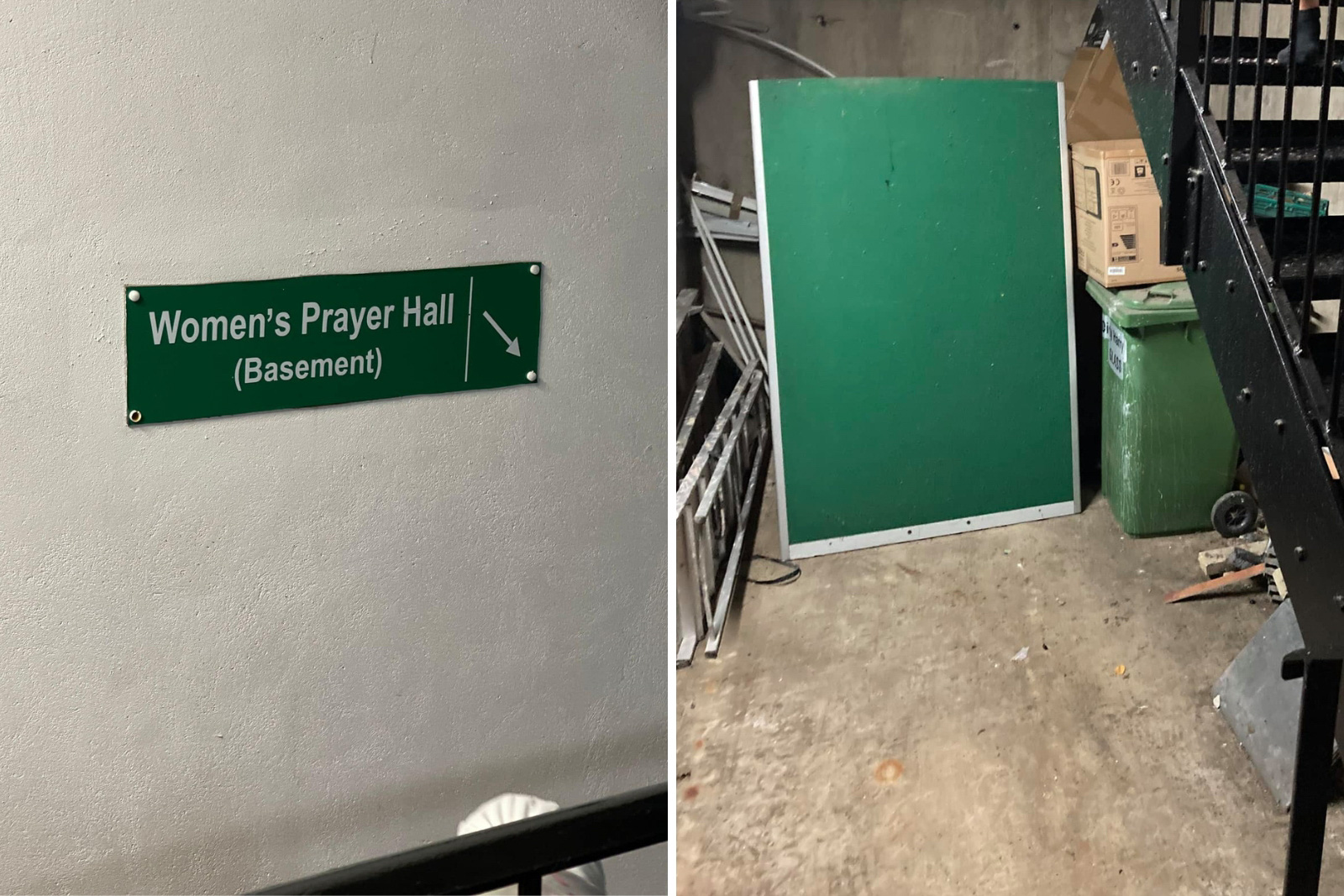New report calls on mosques across the UK to improve access for women
Faith leaders and politicians highlight the discrimination faced by many women as research shows that almost two thirds have experienced negative treatment in a place of worship
–

Faith leaders, politicians and activists have called on mosques across the UK to improve women’s facilities as new research suggests that almost two thirds of Muslim women have experienced negative treatment in a place of worship.
The My British Mosque report, published on 4 March, surveyed 322 men and women in England and Wales on their attitudes surrounding the types of discrimination faced by Muslim women in public prayer spaces.
The research was commissioned by Open My Mosque, a UK campaign group that has documented the negative and positive experiences of women in mosques since 2015, and Together We Thrive, a network of Muslim women that aims to tackle social inequalities.
The survey reveals that 96% of respondents said they believe women should not be stopped from attending the mosque to pray, and that women should not be excluded from mosque leadership.
However, 59% said they themselves or a woman they know had experienced unfair treatment in a mosque, including physical intimidation, sexism and being denied entry, on one or more occasions.
According to the latest data from Muslims in Britain, 28% of the approximately 1,858 mosques in the UK do not offer facilities for women.
Baroness Sayeeda Warsi, former co-chairwoman of the Conservative Party and vice chair of the All Party Parliamentary Group on Muslim Women, said the findings highlighted the importance of mosques becoming more accessible to women.
Speaking at a launch event for the report at the House of Lords on 4 March, Warsi pledged to rally Muslim umbrella organisations, such as the Muslim Council of Britain (MCB) and the Mosques and Imams National Advisory Board, to work with mosques to become more inclusive.
“All mosques should be open to women, and if they are not, they should be on a journey to making themselves open,” said Warsi.
“The argument that Muslim women should be allowed to go into a mosque and pray when they want is not one that is being pushed back on theologically, but in reality, it is the experience that women are having,” she added.

The experience of many Muslim women is also echoed by some of those from other faiths. The Rt Rev Dr Rosemarie Mallett, the bishop of Croydon, expressed her support for the campaign at the launch of the report. Mallett drew on her own experiences, and said that while the Church of England is largely welcoming, “there are some spaces where I am not welcome to be a bishop, because I am a woman”.
“This is not a faith issue, it is a power issue. The status quo is not good enough, and it needs to change. Muslim women don’t feel welcomed, or that they belong in that space, yet they have a right to be there.”
The report also identified the most common ways that women experience discrimination in the mosque.
According to the My British Mosque report, where these facilities are available, women’s sections are sometimes closed sporadically and without warning. This means women can often find it harder to find a place to pray, and may miss prayers.
Some women said that when they had tried to assert their right to pray or access spaces inside the mosque, they had been met with intimidation by mosque stewards and male worshippers.
Others also reported that the design of prayer spaces and wudhu (ablution) rooms had left worshippers feeling “unsafe and like second class citizens”. “Unclean poor wudhu facilities … women’s area tends to be in some rubbish corner the men don’t want,” one respondent said.
The overwhelming majority of those surveyed said they wanted equal prayer space for both men and women (85%), Friday prayer facilities for both genders (73%), and more women on mosque management boards (70%).
Julie Siddiqi, a co-founder of Open My Mosque, said: “So many of the stories that have come to us over the years have been about dingy, second-rate spaces. I’ve been in mosques before where we didn’t even know which direction the Qibla was.
“This isn’t just about a physical space, it’s about belonging and feeling part of a community. Men actually don’t know what it feels like to not belong, because they haven’t had to experience this.”
The report also highlights the lack of redress for women from both Muslim representative organisations or statutory bodies. “The mosque trustee boards who are responsible for handling complaints are the same people responsible for decisions to exclude women.”
Siddiqi said that representative organisations like the MCB had a “responsibility” to improve women’s spaces in mosques, but that it was not doing enough.
In 2018, the MCB established a Women in Mosques Development Programme, which offered women leadership training sessions with the view of getting more women on mosque boards. However, as of 2020, just 37 women had taken part — one source told Hyphen that the programme has been paused since the outbreak of the Covid pandemic.
“You can’t give women some training and then expect them to just be on leadership boards,” said Siddiqi. “They need structure and support, and it needs to be accompanied by holding mosques to account, and calling out bad behaviour.”
“The MCB is working with affiliated mosques across the UK to improve access, inclusion and better governance,” said a spokesperson for the MCB, in an emailed statement. “We know many of our mosques are playing a leading role in setting best practice, from working with local communities, dedicated spaces for women, and improving diversity of trustee boards with more women participating and providing BSL for the congregation.”
While efforts to tackle gender discrimination continue, researchers also highlighted examples of mosques that are providing inclusive and welcoming environments for women. In London, these include East London Mosque, Palmers Green Mosque and the Al-Emaan Centre in Keston.
Others praised in the My British Mosque report are Cambridge Central Mosque, Khadijah Peterborough, Green Lane Masjid in Birmingham and the British Muslim Heritage Centre in Manchester.
In these mosques, women are offered accessible prayer spaces equal to facilities available to men, and women-specific services, such as alimah courses and support for converts. Additionally, women hold positions on leadership boards, or have a women’s committee.
Additional reporting by Burhan Wazir
This article was updated on 6 March, 2024, to include portions of a statement provided to Hyphen by the Muslim Council of Britain.
Topics
Get the Hyphen weekly
Subscribe to Hyphen’s weekly round-up for insightful reportage, commentary and the latest arts and lifestyle coverage, from across the UK and Europe
This form may not be visible due to adblockers, or JavaScript not being enabled.